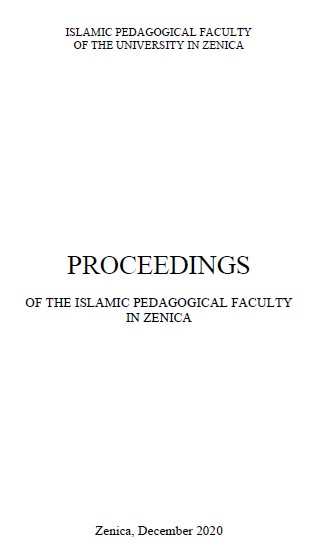STILOVI RODITELJSTVA KAO DETERMINANTA RAZVOJA PERFEKCIONIZMA KOD DJECE OSNOVNOŠKOLSKOG UZRASTA
PARENTING STYLES AS A DETERMINANT OF THE DEVELOPMENT OF PERFECTIONISM AMONG ELEMENTARY SCHOOL STUDENTS
Author(s): Anela Hasanagić, Aldina LetoSubject(s): Individual Psychology, Developmental Psychology, Personality Psychology, Behaviorism, Family and social welfare, Socio-Economic Research
Published by: Islamski pedagoški fakultet Univerziteta u Zenici
Keywords: perfectionism; parenting styles; responsiveness; autonomy; demandingness;
Summary/Abstract: Parenting styles refer to specific ways of parents’ behavior towards children including at least two dimensions, namely affectionateness in the relationship and control, which as such determine many characteristics of children’s personality encountered later on. What has remained undefined up to now is whether perfectionism is determined by inborn or environmental factors. The aim of this paper is to ascertain whether perfectionism is determined by various parenting styles and to what extent. The sample was composed of 110 participants, final grade elementary school students. We used the following instruments: the SD survey, the Burn’s Scale of Perfectionism and the Parenting Style Inventory II (PSI- II). The obtained results indicate that parenting styles present significant determinants of perfectionism, while socio-demographic variables are not significant predictors. Furthermore, the findings suggest that demandingness as an aspect of parenting style is a significant determinant of perfectionism ((F3/106=3.00, p<0.05; β=0.244, p<0.05), whereas responsiveness and autonomy approval are not statistically significant predictors. Moreover, the results showed that there are no significant differences between boys and girls in terms of perfectionism, but that there are gender-based differences in the aspect of parenting style of responsiveness, with girls perceiving their parents (M = 20.07) as more responsive than the boys (M = 18.57) (t=-2,82, p<0.05).
Journal: Zbornik radova Islamskog pedagoškog fakulteta u Zenici
- Issue Year: 2020
- Issue No: 18
- Page Range: 119-143
- Page Count: 25
- Language: Bosnian

